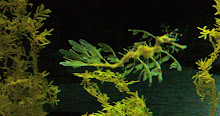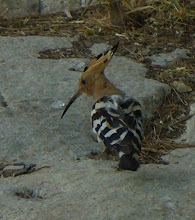First of this week's "Pick of this week" science articles is this piece by Felicity Barringer in The New York Times -
http://www.nytimes.com/2011/07/21/science/earth/21fishbones.html?ref=science
The article talks about new plans to use fish bone meal to decontaminate lead-poisoned soil; it also contains this disturbing quote-
“It’s fair to say, looking forward, that just about every urban residential area probably has a lead problem and we just can’t afford economically and socially to move that amount of dirt any more,” ..“Topsoil is a precious resource, and we don’t have enough topsoil to replace it.” by Steve Calanog of the Environmental Protection Agency- the quote's context and more details about the clean up programme are given in the article.
It seems to me that clean-up projects are going to become increasingly important worldwide over the next few decades, not least because of overcrowding and the cumulative effects of our past environmental disasters. As a human being, I find this situation depressing, but as a scientist, I find it fascinating.
Environmental decontamination is not a new field, of course- it was suggested over five years ago, for example, that bacteria could be used to clean up Uranium contamination- you can find an article on the subject by Hannah Hickey on Stanford University's website [here].
More recently, British scientists have investigated using fungi to clean up depleted uranium contamination. The magazine "Cosmos" has a popular science account of this research [here] (The full-text of the original research paper: "Role of fungi in the biogeochemical fate of depleted uranium" by Marina Fomina, John M. Charnock, Stephen Hillier, Rebeca Alvarez, Francis Livens and Geoffrey M. Gadd can currently be freely downloaded from the website of the journal "Current Biology"- the article was originally published in 2008 in Volume 18(number/issue 9) pp. R375 - R377 of Current Biology).
Finally, Britain's Guardian Newspaper reported on Friday that Scientists at CERN have, at last, found evidence of the infamously elusive Higg's Boson, of course, the story behind the headlines is much more softly stated and much less conclusive, but that is so often the case with science stories in the media-
the guardian article is here - http://www.guardian.co.uk/science/2011/jul/22/cern-higgs-boson-god-particle
Subscribe to:
Post Comments (Atom)









No comments:
Post a Comment